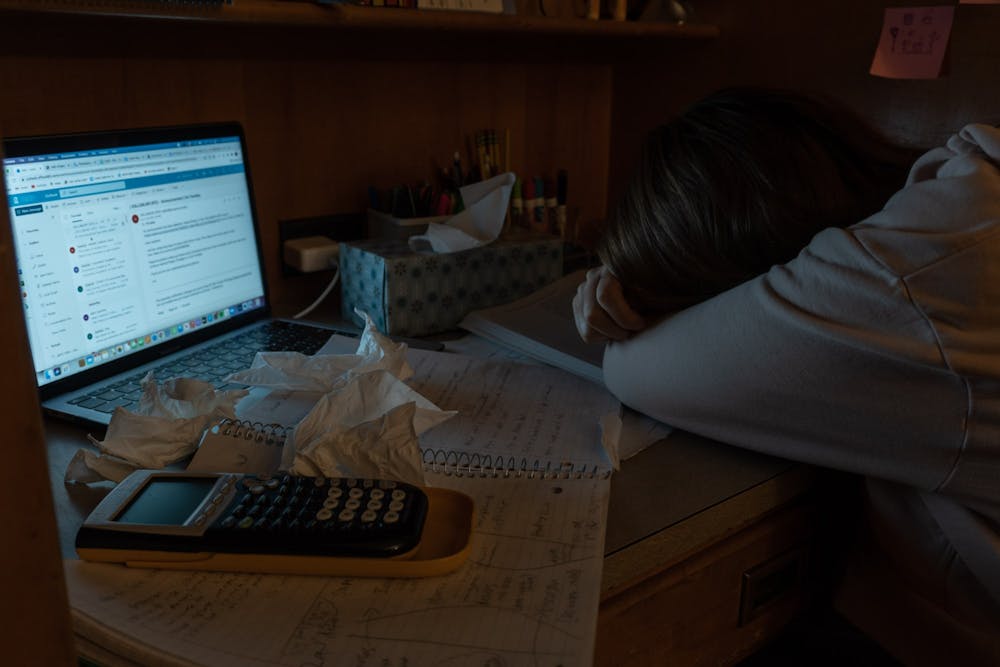El Futuro:
According to their website, El Futuro is “a nonprofit outpatient clinic that provides comprehensive mental health services for Latino families in a bilingual environment of healing and hope."
El Futuro serves the Latinx and Spanish-speaking community, including recent, second or multigenerational immigrants. Clients can choose to speak Spanish or English as all of the staff is bilingual and has the cultural lens on the work, Clinical Services Manager Heather Ladov said.
Located in Durham and Siler City, El Futuro provides mental health care to the Spanish-speaking community surrounding Durham, Orange County, Chatham County and other surrounding counties, Ladov said.
In addition to therapy and counseling, El Futuro offers case management services, which connect people to resources such as food, shelter, access to applying to benefits, job resources and other needs that community members come in with needing access to and information about, Ladov said.
"We also have groups," Ladov said. "We have classes and groups where we provide group support, as well as education and information about a lot of different topics. And then we also have doctors, psychiatrists on staff that, alongside therapists, provide consultation around medications that can be helpful for treating mental health conditions.”
Ladov said there's also an option to bring family members into therapy if the patient is comfortable with doing so.
“The way that we understand our work as well as the way that Latino families traditionally often work is that it's not just one person, that they're part of a larger unit," Ladov said. "They're part of a family. And so, while there may be an identified problem with one person, it's so important to bring in the rest of the family to weigh in and understand dynamics and relationships because it's all interconnected.”
El Futuro has a walk-in clinic at their Durham location on Tuesday, Wednesday and Thursday from 9 a.m. to noon. Once a person walks in, they do initial intake paperwork and consent for treatment, and then talk with a therapist about what is going on and what the next steps are.
Ladov said that patients do not need a referral for their services and take various insurances as well as Medicare, but the best thing to do is to call El Futuro and ask about the insurances they take.
“I think that, you know, it's important to note that oftentimes in the Latino community there can be like a stigma around seeking mental health services,” Ladov said. “... At El Futuro we really kind of recognize that and want to pierce through that stigma to say that asking for help and seeking support is not a sign of weakness, but a sign of strength.”
Therapy for Black Girls:
To get the day's news and headlines in your inbox each morning, sign up for our email newsletters.
Therapy for Black Girls is an online space that works to encourage and build mental wellness for Black women and girls, according to the Therapy for Black Girls website.
The website contains links to finding therapists around the country for Black women and girls’ needs, in addition to blog posts and a podcast by Joy Harden Bradford.
There is also a Crisis Text Line available through the site, accessible by texting TRIBE to 741741
For answers to general questions or podcast topic suggestions, individuals can email info@therapyforblackgirls.com.
Therapy For Black Men:
Therapy for Black Men is a website dedicated to facilitating the process of finding therapists for Black men, who often face stigma for needing and finding mental health support, according to their website.
Through their “Find A Therapist” webpage, individuals can search for a therapist in their area and tailor their search to their specific needs.
Therapy for Black Men can be contacted at (646) 780-8278 and info@therapyforblackmen.org.
Asian Mental Health Collective:
The Asian Mental Health Collective is an organization focused on gathering and disseminating mental health resources for the specific needs and concerns of members of the Asian diaspora, according to the AMHC website.
The AMHC website also has an American and Canadian therapist directory where individuals can tailor their searches based on their needs and location.
AMHC also has a resource directory dedicated to helping individuals find organizations and other resources for the Asian community.
The LGBT Center of Raleigh:
The LGBT Center of Raleigh offers mental health resources, community resources, events, initiatives and groups tailored to the needs of the LGBTQ community.
While the LGBT Center of Raleigh, located on 19 W. Hargett St. Suite 507 in Raleigh, N.C., is physically closed, they offer virtual events here.
They can also be contacted at 919-832-4484 or info@lgbtCenterofRaleigh.com
National Alliance on Mental Health Wake County Culturally Competent Resources:
The National Alliance on Mental Health Wake County has a web page with multiple different resources for different communities.
For more mental health resources you can visit these mental health resource articles: https://www.dailytarheel.com/article/2021/11/university-utility-referrals and https://www.dailytarheel.com/article/2021/10/opinion-mental-health-resources-in-chapel-hill
university@dailytarheel.com



